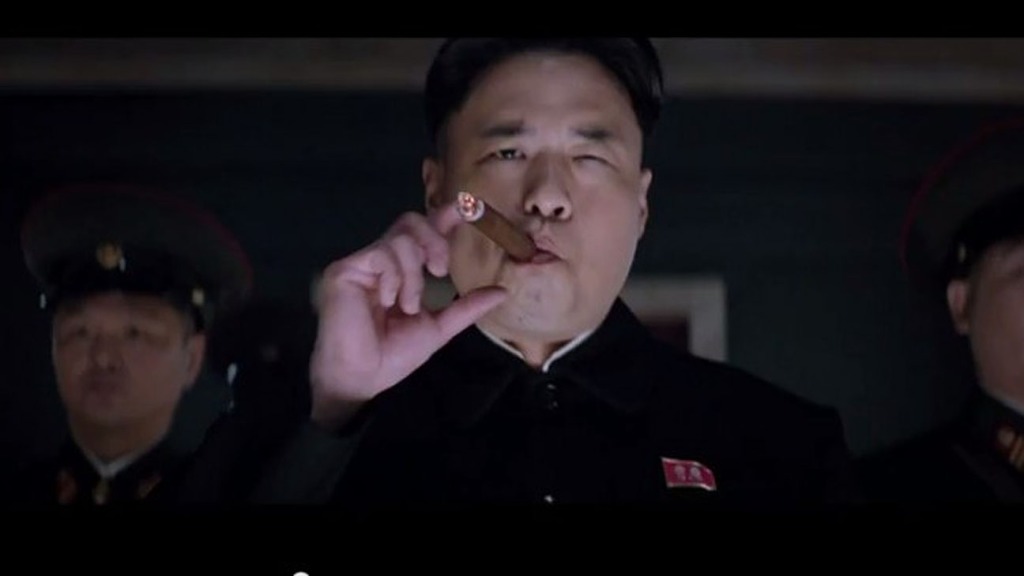The massive negative publicity heaped upon Sony Pictures Entertainment in the wake of the devastating computer hack has renewed long-simmering questions about whether its Japanese parent company will sell the unit.
A year ago, analysts were speculating that Sony Pictures was worth about $10 billion, which would amount to 44 percent of the entire market capitalization of parent Sony Corp., based on the closing price of shares Friday on the New York Stock Exchange. For several months this year, Sony was under pressure from activist investor Daniel Loeb to offload all or part of the Los Angeles-based film and TV studio. Now, days after Sony Pictures was publicly rebuked by President Obama for canceling the release of The Interview after theater groups refused to show it, the prevailing wisdom appears to be that CEO Kazuo Hirai might be regretting his decision to resist Loeb’s proposal because the value of the studio has dropped.
The debacle surrounding The Interview will cost Sony at least $200 million, some analysts have said. But once costs of the film and marketing are added to costs associated with a computer-system upgrade, class-action lawsuits from former employees as well as some intangibles – like a perceived diminished reputation – the value of the studio could have fallen much further.
Read more Michael Lynton Thanks Staff After “Incredibly Taxing” Few Weeks
For that reason, Sony probably has little short-term interest in shedding the unit, says Steven Birenberg of Northlake Capital Management. “I don’t think they will sell now on the theory that they will be selling low,” he said. “If they held before when bids would have seemingly been higher, I don’t see them selling now.”
As of Friday, Sony shares have fallen 4.9 percent since the hacking was made public Nov. 24, while the broader markets are flat in that time frame, which could indicate investors are at least somewhat worried that the value of Sony Pictures has fallen. The studio has been a somewhat stable revenue generator as the larger Sony has suffered massive losses in recent years, though its performance ebbs and flows and, outside of the Spider-Man property, it does not possess the major franchises of rivals like Disney and Warner Bros. Hirai, though, has been talking up his “One Sony” vision that unites mobile devices, games, music and, of course, TV and film, so he still has little interest in selling off Sony Pictures, say observers.
Read more ‘The Interview’ Promotional Items Are Suddenly High-Priced Collectibles
“I don’t think this would spur Sony Corp. to sell off Sony Pictures and I don’t think there’s anyone who would want to inherit the headache and negative PR from all of this,” says Wade Holden of SNL Kagan. “Having a production studio is important to Sony’s strategy with its consumer electronics, especially the Playstation. Having that content on their Sony Entertainment Network is key for their electronic success.”
At the very least, however, the hacking scandal likely will fundamentally alter the relationship between Sony Corp and its US studio, which until now has been a very hands-off arrangement giving CEO Michael Lynton and co-chair Amy Pascal broad freedom to make and market the films they choose. And if Hirai decides that the studio is simply too much of a headache now, there are several others who could step up to purchase it.
CBS remains a candidate, especially given that CEO Les Moonves is known to be interested in acquiring a major studio to compliment his CBS Films. Some have also noted that Japanese financial power SoftBank still might be in the market for a studio after its aborted talks to acquire DreamWorks Animation earlier this year, and Hirai might feel more comfortable selling all or part of the studio to another Japanese company. SoftBank is flush with cash after booking a $4.6 billion gain on its investment in Alibaba Group, China’s biggest Internet company. Alibaba itself is known to be interested in U.S. entertainment companies, as is U.S. studio Lionsgate. Emails revealed in the data breach showed that Lionsgate executives were interested in discussing a possible merger with Sony.
In its most recent full fiscal year, Sony Pictures posted operating profit of $501 million, down 1.6 percent over the previous year amid high-profile flops like White House Down and After Earth. The studio, though, also has rights to James Bond movies (with MGM) and a lucrative TV arm that includes Breaking Bad and Wheel of Fortune.
Read more Hustler to Produce Porn Parody of ‘The Interview’
As much as American consumers are displeased with Sony’s perceived capitulation to North Korean terrorists (survey firm Survata says 36 percent of adults say Sony was wrong to pull the film, while 27 percent say the studio was right to do so), they are not likely to punish the studio by withholding their business.
“The PR sucks, and I suppose they could conclude it was permanently damaged,” Birenberg says. “But the key point is whether the damage impacts the willingness of creative types to work with Sony Pictures. Consumers are not going to care if a TV show or film was produced by Sony Pictures or some other studio. That is how I would define ‘permanent damage.’ ”
Sony did not respond to a request for comment.
“This is a bump in the road for Sony,” says John Alan James, a professor at Pace University’s Lubin School of Business and chairman emeritus of its Center for Global Governance, Reporting and Regulation.
James, who spent 15 years advising a major Japanese corporation, says that the hack and Sony’s response to it is not enough to encourage Sony management to sell Sony Pictures, though Lynton and Pascal might not survive the upheaval.
“The Japanese don’t act quick on anything. I think they’ll wait this out,” James says. “But I wouldn’t be surprised if the top executives at Sony Pictures are asked, ‘take your time, clean this up, then go.’ ”
James also speculates that Pascal and Lynton were not behind the decision to cancel the Christmas Day release of The Interview.
“It had to come from Japan, because they were so embarrassed,” he says. “They shouldn’t have done it. One thing about Americans is our spirit as individuals. They say: ‘No kooky North Korean is going to scare me from living my life.’”
Email: Paul.Bond@THR.com
Source: here


